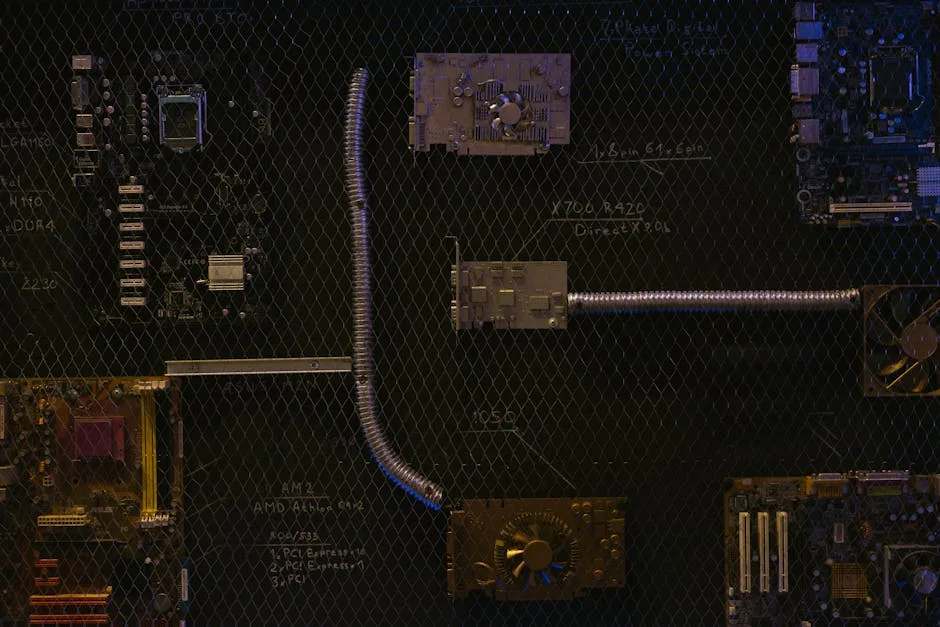
Security researchers at Shelltrail have identified three critical vulnerabilities in the IXON VPN client that could allow attackers to escalate privileges on both Windows and Linux systems. These flaws, tracked as CVE-2025-ZZZ-01, CVE-2025-ZZZ-02, and CVE-2025-ZZZ-03, affect a widely deployed industrial VPN solution used for remote access to operational technology environments. The vulnerabilities present serious risks to organizations relying on IXON’s VPN for secure connectivity.
Technical Breakdown of the Vulnerabilities
The most severe of the three vulnerabilities, CVE-2025-ZZZ-02, affects Linux systems and involves predictable temporary file paths. The IXON VPN client creates configuration files in /tmp/vpn_client_openvpn_configuration.ovpn with insufficient permissions, allowing local attackers to hijack the file through a race condition. Shelltrail researchers demonstrated how this could be exploited to execute arbitrary commands with root privileges:
mkfifo /tmp/vpn_client_openvpn_configuration.ovpn
echo -e 'script-security 2\nup /bin/sh -c "id > /tmp/poc"' > /tmp/malicious.ovpn
cat /tmp/malicious.ovpn > /tmp/vpn_client_openvpn_configuration.ovpn &On Windows systems, CVE-2025-ZZZ-03 exploits a race condition in C:\Windows\Temp that could lead to SYSTEM-level code execution. The vulnerability stems from improper handling of temporary files during the VPN connection process. Attackers could potentially drop malicious executables that would be executed with elevated privileges during subsequent VPN operations.
Impact and Affected Systems
These vulnerabilities are particularly concerning for industrial environments where IXON VPN is commonly deployed. Successful exploitation could allow attackers to gain complete control over operational systems, potentially leading to ransomware deployment or industrial espionage. The affected software is used across various critical infrastructure sectors, including manufacturing, energy, and transportation.
IXON has released version 1.4.4 to address these issues, which implements proper file permission restrictions and secure temporary file handling. Organizations using earlier versions should prioritize upgrading to this patched release. The update also includes additional security hardening measures beyond just fixing the reported vulnerabilities.
Comparative Risk Analysis
| Vendor | CVE(s) | Risk | Patch Status |
|---|---|---|---|
| IXON | CVE-2025-ZZZ-02/03 | Critical (LPE/RCE) | Patched in v1.4.4 |
| OpenVPN | CVE-2024-8474/1305 | High (Key leak/crashes) | Patched in 3.5.0/2.6.10 |
| Dell SCG | CVE-2025-23382/26475 | Medium-High (Data leak) | Patched in 5.28.00.14 |
Detection and Mitigation Strategies
Organizations should immediately check their systems for vulnerable IXON VPN client versions. The following steps are recommended:
- Upgrade all IXON VPN clients to version 1.4.4 or later
- Monitor for unusual process execution from temporary directories
- Implement strict file permission controls on /tmp (Linux) and C:\Windows\Temp (Windows)
- Consider additional network segmentation for VPN-connected systems
For Linux systems, administrators can use the following command to check for vulnerable configurations:
find /tmp -name "vpn_client_openvpn_configuration.ovpn" -perm -o+wConclusion
The IXON VPN vulnerabilities highlight the ongoing security challenges in remote access solutions, particularly in industrial environments. While patches are available, the window of vulnerability between disclosure and patching remains a critical concern. Organizations should implement robust patch management processes and consider additional defensive measures such as endpoint detection and response (EDR) solutions to detect potential exploitation attempts.
References
- Shelltrail Technical Report, 2025.
- IXON Support ADV-2025-03-17, 2025.
- Cybersecurity News: IXON VPN Vulnerabilities, 2025-04-27.
- OpenVPN Release Notes, 2024.
- Dell SCG Advisory, 2025.






